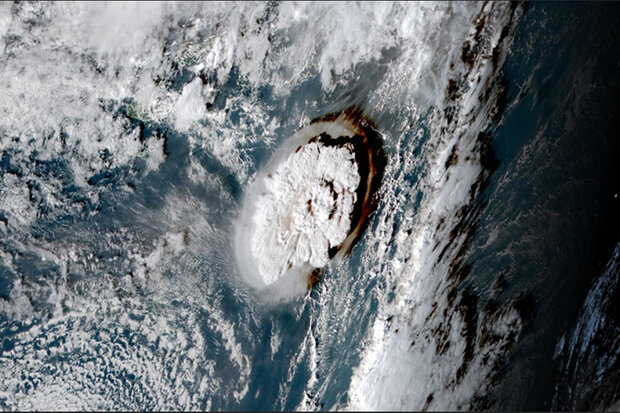New study revisits link between ENSO and volcanism


The underwater Tonga Volcano erupted spectacularly in mid-January 2022. Credit: CSU/CIRA and JAXA/JMA.
The El Nino-Southern Oscillation (ENSO) is a major source of global climate variability and significantly impacts the United States. Understanding how external forcing, such as the eruption of volcanoes that inject sulfate aerosols into the atmosphere and reduce the amount of incoming shortwave radiation, impact ENSO is essential to better understand climate model sensitivity to volcanoes, as well as potential risks of solar radiation management approaches.
The link between ENSO and volcanism is difficult to assess for a number of reasons and has been debated among scientists for over 40 years. Past studies using tree ring proxies have suggested a relationship between the two, with multiple mechanisms proposed; while studies using coral proxies have suggested no relationship. A recent study published in Nature Communications, funded in part by the Climate Observations and Monitoring program, revisits examining this link since new data have become available and there have been advancements in paleoclimate data assimilation.
Read more at the link below.